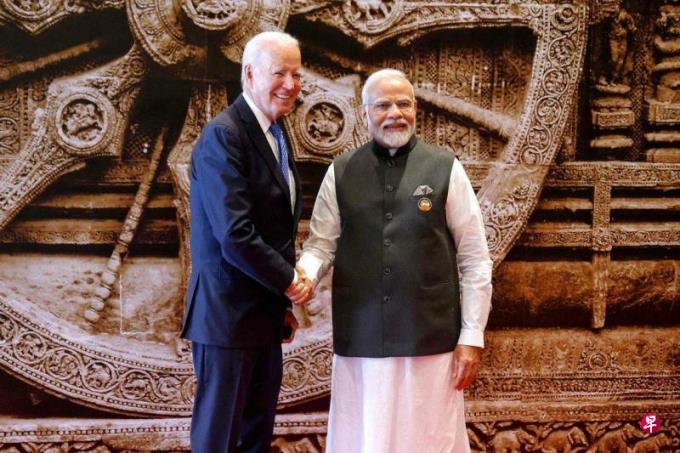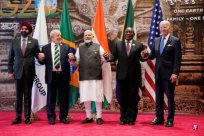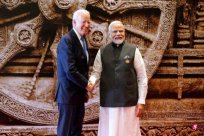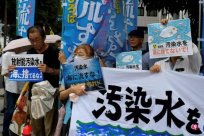
(New Delhi Comprehensive) U.S. President Biden and Indian Prime Minister Modi held talks in New Delhi, promising to strengthen cooperation in a series of areas.
Biden and Modi on Friday (September 8) On the eve of the opening of the G20 Summit of the G20, it was negotiated at Modi's official residence for nearly an hour.According to a 29 -point joint statement announced after the White House, the heads of the two countries promised to strengthen cooperation in a series of areas, including key and emerging technology fields such as trade, chips and quantum, supply chain, nuclear energy and renewable energy, and education.
Campbell, an Indo -Pacific Affairs Coordinator of the National Security Council, also told the media that the leaders of the two countries are trying to fight for a "major breakthrough" to connect India with the infrastructure and communication networks in the Middle East and Europe.He also said that the situation may be announced on Saturday.
The United States, India, and Persian Gulf countries have been discussing the establishment of a new railway and port network to connect these regions, similar to China's "Belt and Road" global infrastructure plan.With the United States providing cash to the World Bank and various commitments made, Biden hopes to persuade the rapid growth economy in Africa, Latin America and Asia. In addition to the "Belt and Road" projects in China, there are other options.
The United States strives to fight against China to fight against China to support the reform of the United Nations Security Council
Although the United States and India are not signing allies, India has also emphasized that it is independent, but Washington has continued to strive for New Delhi to become a strategic compete against China.Biden also repeats the support of the reform of the United Nations Security Council this time, making India a permanent member.
The joint statement did not mention Mainland China or Taiwan nor did it not mention the South China Sea, but Biden and Modi reiterated that the Quad Security Dialogue (QUAD) for supporting a "free, open, tolerant and tough IndiaThe importance of region.
In conjunction with Bayeng's visit to India, the Office of the US Trade Representative announced on Friday that the two countries have resolved the last unreasonable dispute that they originally seemed to see the World Trade Organization.This dispute involves poultry trade, especially in India to restrict imported from local agricultural products due to the problem of American avian influenza.India also agrees to reduce the tariffs of frozen turkey, duck meat, fresh blueberries and cranberries.
The meeting of the U.S. -India summit caused the displeased by the US accompanying journalist.This is because Indian officials areolate the American journalist group in a small passenger car to prevent them from entering the venue. The photos of the two summits were later provided by the Indian side.Modi was unwilling to be interviewed by foreign media. In June this year, he visited Washington. After a long discussion, the Indian officials finally agreed to ask American journalists to ask a question at a press conference.




